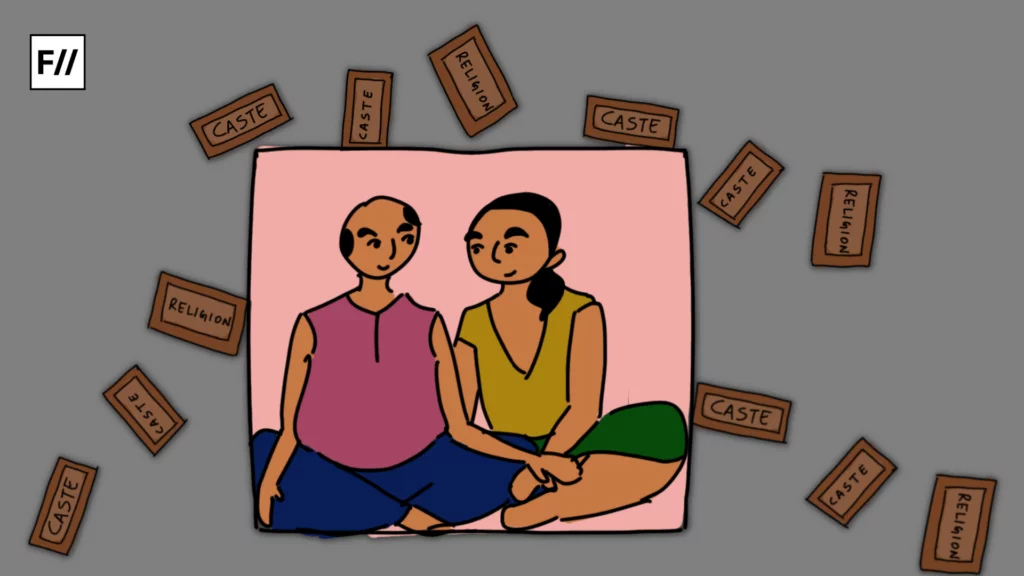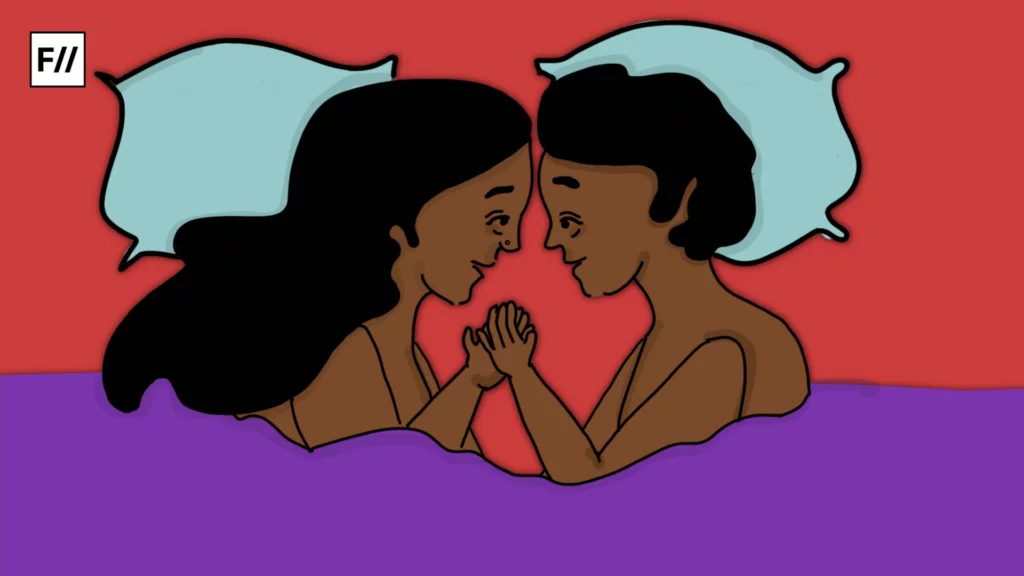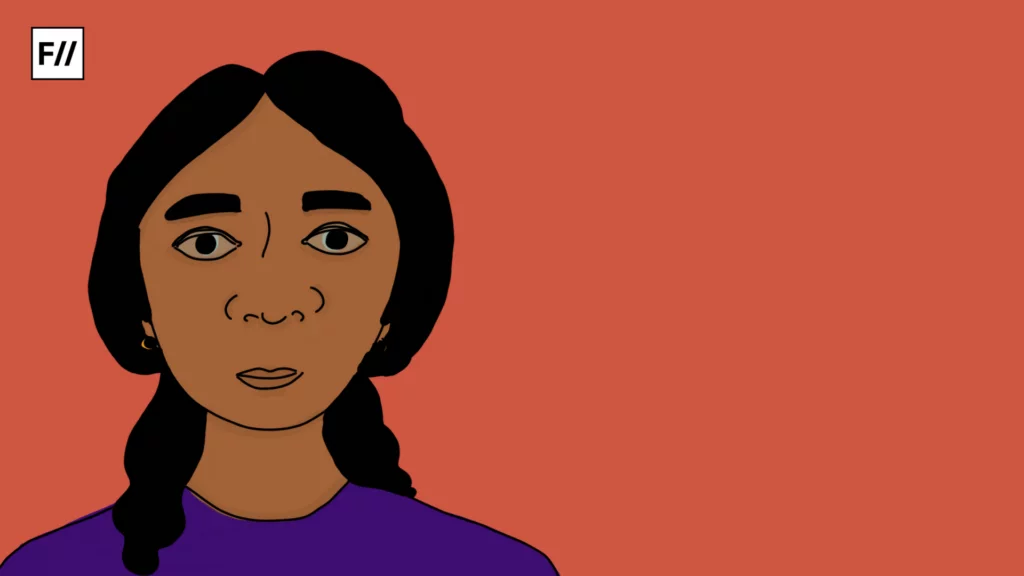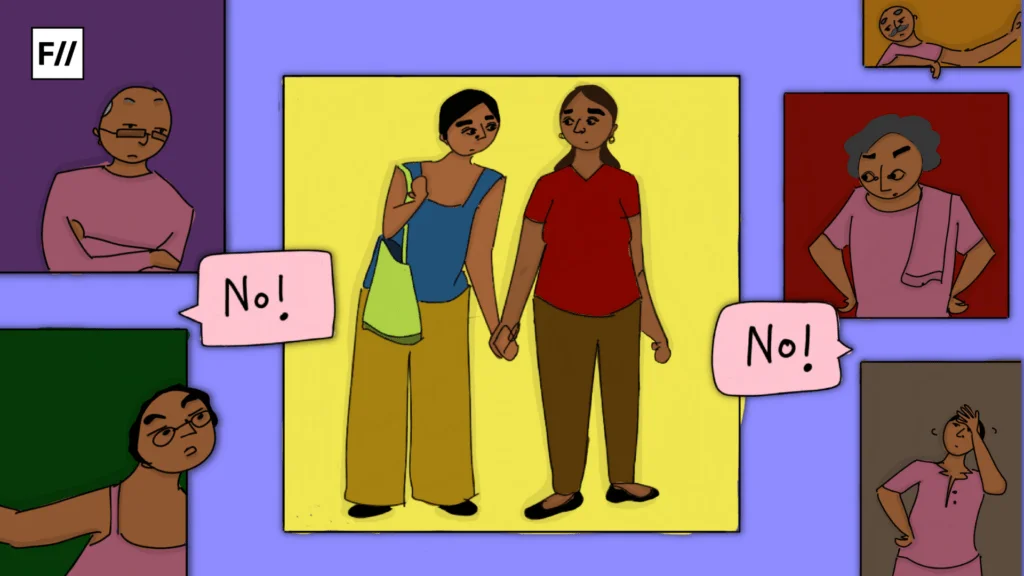On 24 February 2024, 22-year-old Praveen was attacked by a group led by his brother-in-law and hacked to death in broad daylight in the state capital of Tamil Nadu, Chennai. Praveen, a Dalit youth working as a bike mechanic had married Shamila after falling in love with her since their school days. Now the couple had become a victim of the crime of honour killing and caste pride as they both belonged to opposite castes. The girl’s family was opposed to their marriage.
The brutal murder of Praveen was another case of the horrendous crimes against the young couples who decide to choose their partner as per their wishes. This constant violence against young adults, particularly in cases of inter-caste marriages, has tragically not seen any reduction in recent years despite wider discussions and government claims of stricter laws in cases of gender violence.
Tamil actor Ranjith, in a shocking statement on August 9, said that caste-based honour killing is not violence; it is just the parents’ way of showing their love for their children.
While the country is grappling with a social crime centred around age-old feudal values, Tamil actor Ranjith, in a shocking statement on August 9, said that caste-based honour killing is not violence; it is just the parents’ way of showing their love for their children. In his defence of the heinous crime, the actor said, ‘Only parents know the pain. Those parents for whom life is all about their children get angry and they show it.‘

As troubling as his thoughts are, his statement should not be just discredited as an anomaly but should be seen in a broader social context.
Violence against women and young adults is a common sight and it presents a bitter truth in front of our eyes where caste, not the law, is the most dominant force and constitutional values and human rights still struggles to make any inroads. Ranjith’s statement reflects a crude social reality where the Brahminical caste apparatus reigns high even after 70 years of independence.
His ideas are the marker of feudal notions of control and subjugation which are antithetical to any expression of individual will, more so in women’s cases and they still plague our society. A significant part of our society still believes on those terms and sees “honour” to be of utmost value. This notion of honour seeks to control women’s body, their desire, and every aspect of their individuality.
Honour killings should not be described as isolated acts by reactionary ultra conservative elements of the society against the young adults exercising free choice in the matter of marriage who have broken the rigid caste norms.
Honour killings should not be described as isolated acts by reactionary ultra conservative elements of the society against the young adults exercising free choice in the matter of marriage who have broken the rigid caste norms. Their recurrence should be seen through the lenses which evaluates them as an inherent outcome of a patriarchal model which functions on coercion and intimidation and does not tolerate any act of resistance or individual autonomy.
The active agents of this social order do not dither from applying violence in any measure. Violence is inflicted in varied and hideous forms – physical to psychological, from social shaming to boycott by the community. How violence is the core to the Brahminical patriarchal system was seen in the case of public celebration of the release of the rapists in Bilkis Bano gang rape case from the prison.
This crime has its roots in patriarchal social organisation and kinship whose essential and distinctive element in India’s case is caste. These endogamous group structures dictate individual and group behaviour in every sphere of life and suppress any transgression. If one fails to maintain these norms, harsh and brutal punishments ensure the control of this overarching patriarchal mechanism.
A dark history of caste pride and honour killings
Multiple Indian states have a dark history of caste pride and brutal murders of couples from different castes once they got married. The history of honour killing in the name of caste pride raises some serious questions on our overall social development. Tamil Nadu is an ironical example of how a modern society with all its progress and prosperity can still hold onto the old patriarchal values where women is seen a property of the father or the husband and youths are coerced to fulfil family’s wishes and maintain caste rigidity.
It is disappointing that a state which has the glorious history of Periyar’s self-respect, women’s liberation and rationality, which boasts of a multi-oriented progress in literacy, economy and social growth can also witness such horrific crimes against their own youth. Such conditions defy the dreams of Dr Ambedkar who had envisioned a society where ‘caste will cease to be an operative force when inter-dining and inter-marriage would become matters of common course.‘ Despite much hype around growth and social progress, the stark reality of honour killings throws this whole talk on progress into question.

Unfortunately, horrendous reports of honour killings from different parts of the country keep emerging. In August 2024, a 16-year-old girl was strangled to death by her brother in Uttar Pradesh’s Meerut over an interfaith love affair. In June this year, Haryana was shaken by a series of honour killings in just few weeks. The reason behind this recurring pattern is the social attitude that family’s honour (and thus of kinship and caste) depends on the chastity of its women and if married into an outside caste, the purity is violated and the family is dishonoured. Marrying into one’s own caste is central to the idea of women’s purity.
In August 2024, a 16-year-old girl was strangled to death by her brother in Uttar Pradesh’s Meerut over an interfaith love affair. In June this year, Haryana was shaken by a series of honour killings in just few weeks.
As per the NCRB data, 33 incidents of honour killings were recorded in India in the year of 2021. Experts says that this is clearly an understatement as many incidents do not come into the public light, hence are never reported. Even in the reported cases, most victims were found to be women.
Pervasiveness of caste and gender
Violence has been the modus operandi in suppressing women’s autonomy and to seek control over their sexuality. Honour killing is one of the most pernicious forms of gender violence. Nonetheless, it has not received the collective attention and civic action it needs. It is a recurring cycle of violence that has been able to hide in plain sight. This grappling notion of honour is responsible for extreme behaviours and for the cruel acts of killing of daughter or son in a barbaric manner.
Horrific incidents of honour killings are regular and news of newly wed couples getting killed at the hands of their own families keep grabbing headlines almost every other day. Despite much talk and stricter laws, the country has shown a complete inability in stopping the continuous thread of honour killings. It is a clear sign of a collective failure on the part of the state machinery, civic action and above all our failure as a society. If we aim to be a forward-looking, progressive nation, the country as a whole needs to carry out a lot more effort to eliminate this predatory mindset.

The tragic violence against women in 21st century India is a matter of grave concern and cannot be ignored anymore. It clearly shows that the state apparatus has been completely incapacitated in the effective prevention of honour killings. The statement of an actor is just a symptom of a problem which has spread deep down into our psyche. It underlies a deeper problem which has its roots in social structure and originates from a patriarchal value system. The country needs an urgent discussion on a wider scale to take effective measures on this problem and to address the pervasive issue of caste and gender.
Tamil Nadu has a long legacy of strong anti-caste Dravidian movement. The state fares much better on the scale of social equality than the northern parts of the country. Despite this progressive legacy the state struggles from caste hierarchy and discrimination and there is a long fight yet to be fought to make a fair and just society. Similarly, other Indian states have to go a long way towards women’s emancipation and social justice.
The state machinery should put effective mechanism in place to stop the occurrence of the heinous crime like honour killing. A civil society movement can also be the starting point from which we can imagine a change in attitudes and a fight for a strong collective action in eliminating this barbaric mentality.





Lmao, “feminists’ will never ask this question to parents/relatives of Muslims girls in love with a Hindu boy.